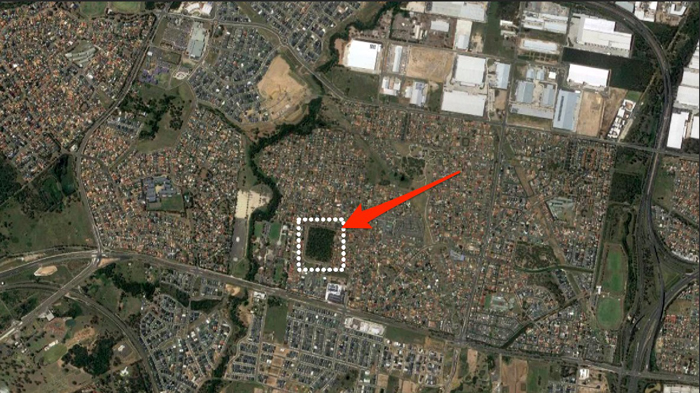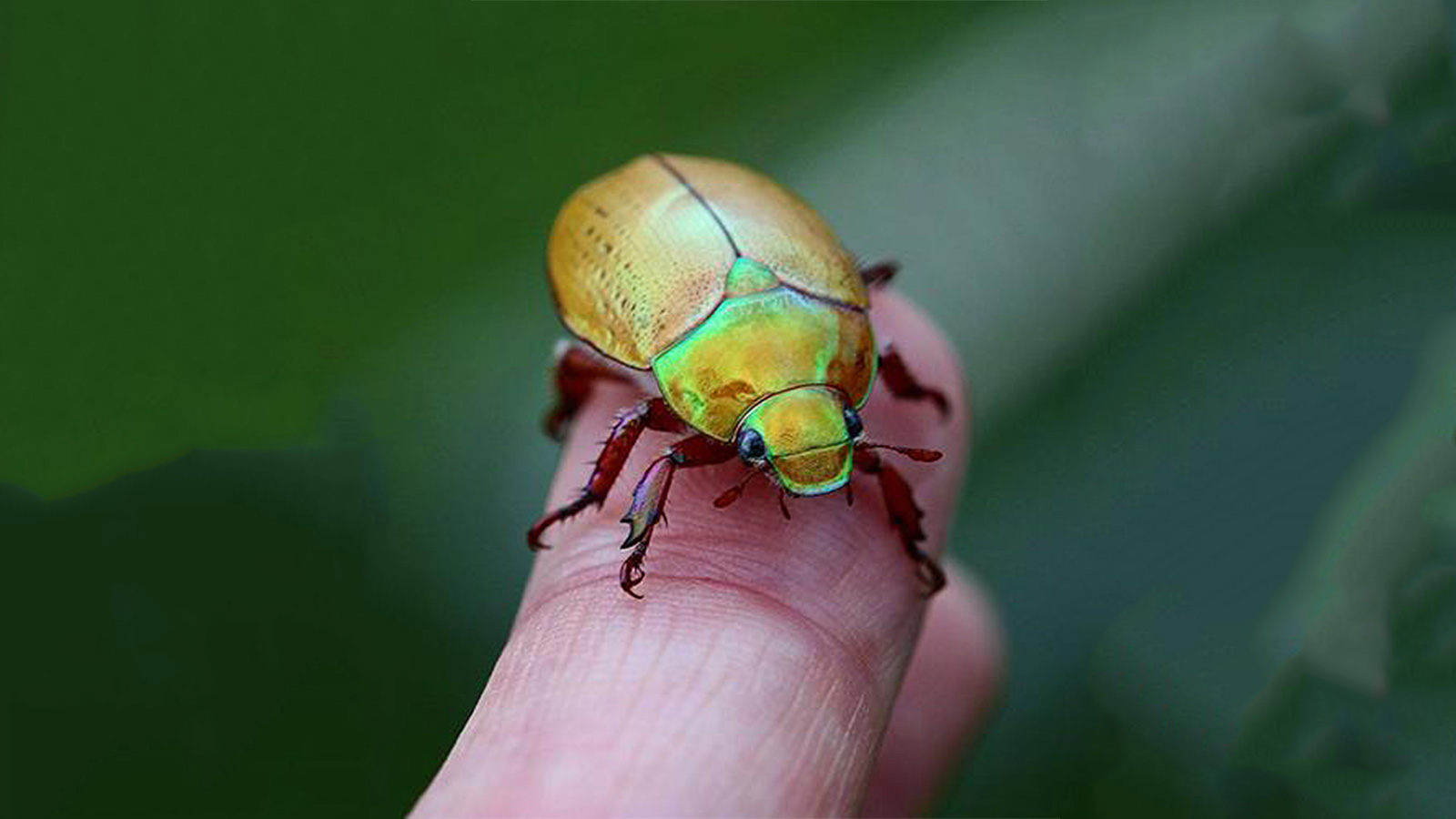Growing up in the 50s and 60s in leafy suburban Sydney, Christmas beetles were common. Not just the small brown ones but the truly wondrous shimmering iridescent green and gold ones. In Summer they could be found everywhere – in the backyard gum tree, flying into the house or clinging to the flyscreen door. Apparently in the 1920s there were so many Christmas beetles that the tree branches around Sydney Harbour bent under their weight causing mass drownings of the beetle.
Now their numbers have declined dramatically and the reason seems to be loss of habitat. The Cumberland Plain woodland which was an important habitat providing eucalyptus leaves and the roots of native grasses for the larvae, has been reduced by over 90% due to human population growth. The Christmas beetles’ former breeding and feeding ground is now bricks and mortar, concrete and motorways.

Cumberland Plain Woodland reduced by 90%
Generally, insects are discouraged. Ants, spiders, flies, wasps, aphids, mosquitos, cockroaches are all considered pests. We spray them with poisons to prevent them entering our gardens and our homes. Farmers eliminate them to protect their crops. However, insects are an essential part of the environmental food chain and their destruction does no-one any good.

insect biodiversity
The Christmas beetle is not the only insect in decline. About a third of all the world’s forested areas have been removed since industrialisation so habitat loss is a large reason. Insects also like diversity and colour and a range of different plants. Humans on the other hand tend to go for uniformity and tidiness with trimmed lawns and weedless gardens and vast areas of monoculture. Even outdoor lighting disturbs the navigation systems of insects like moths and affects their ability to feed.
While the world of beetles, bees and butterflies is being stripped away, we’re creating a world of mosquitos and cockroaches which can adapt to a changing climate.
But even these universally loathed insects have their uses. Mosquitos provide lavae for fish to feed on and cockroaches are great for disposing of rotting food. Even ticks which plague the residents of the Western Foreshores serve a purpose as food for other animals. This surprising Youtube video shows crows eating ticks from a wallaby’s ears.
While humans are quick to jump on the bandwagon of saving endangered animals such as rhinos and koala bears, the loss of these creatures would be nothing in comparison to losing our insects. Their disappearance would mean our ecosystems would collapse. Without insects our lives and the survival of thousands of other plant and animal species would be endangered.
There are ways we can help stop the decline of our insect population.
- Reduce or stop the use of insecticides.
- Allow places for insects to thrive in your garden by reducing areas of mown lawn and planting insect-attracting plants.
- Buy food labelled “pesticide free or “organic” thereby encouraging other growers to change their practices.
- Turn off outdoor lighting.
They might be small and occasionally annoying but we need insects more than ever. They’re not just pests.
Article by Pru Colville
